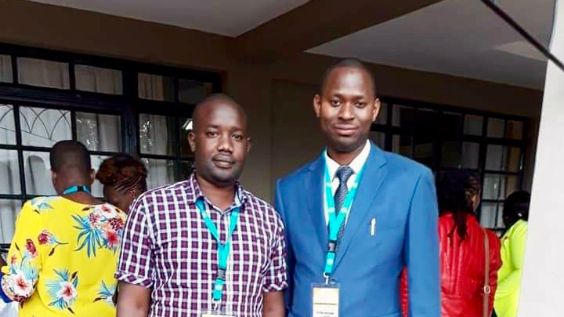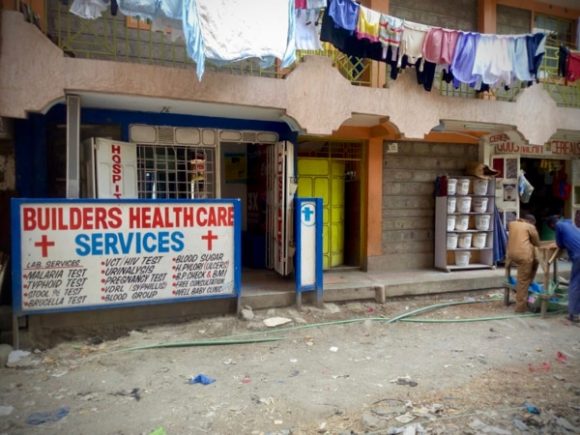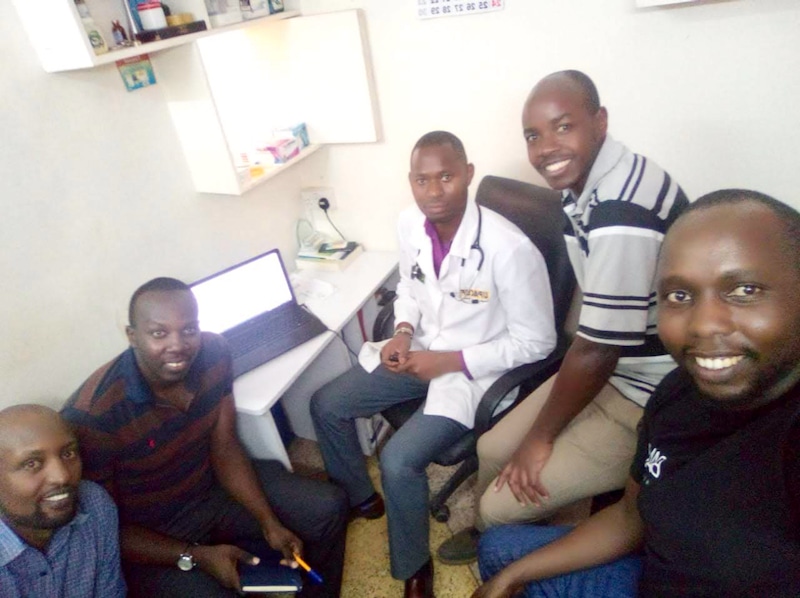
"It's boring without Banda" - Part I
Stephen Muthama started using Banda Go in his clinic just over two months ago. I caught up with him the other day to get a feel for how things were going with Banda Go at his clinic.
Today, we’ll take a quick look at the challenges Muthama faces running a private clinic in a middle-income neighborhood. On Thursday, in Part II, we’ll see how Muthama is using Banda Go to build a sustainable business and deliver quality healthcare to his patients despite these challenges.
Header photo by Laurakomanga.
Want to get stories like this straight to your inbox?

Pipeline Embakasi: "middle-income residential area"
Home to Builders Health Care Clinic and its owner Stephen Muthama, Pipeline is situated on the south side of Nairobi near Jomo Kenyatta International Airport. According to Muthama, Pipeline Embakasi is a densely populated “middle-income residential area.”
Most of the high-rise residential buildings have electricity, he says, but few have indoor plumbing. Residents retrieve water from a borehole serving 10-15 buildings. Most choose to drink bottled water if they can afford it. The roads are OK, as long as it’s not raining – drainage and sewer systems can be easily overwhelmed. High demand for housing leads to extremely crowded construction – buildings go up right next to each other and streets are squeezed between them. Coupled with busy car, bike and foot traffic, Muthama says that local fire departments have a difficult time making their way to the scene of a fire even if it is close by.

Middle-income doesn’t mean you have access to healthcare
Residents of Pipeline Embakasi have extremely limited public healthcare options. Getting to a hospital takes most people about an hour. Muthama says that in theory, government hospitals or clinics tend to be the cheapest options. But by the time patients get there, wait in long lines often for hours, and make extra trips to a third party lab or pharmacy, it’s not clear how much money patients end up saving. Most prefer to try something closer to home first.
When Muthama first opened Builders, there were essentially a number of “Chemists” in the area – small shops selling antibiotics and painkillers without prescriptions. But there were no clinics offering medical consultation or lab testing. Muthama saw a need for better healthcare providers and an opportunity to be that provider. In April 2016, he left his position as manager of a clinic franchise and started his own private clinic.
Middle-income doesn’t mean you can afford healthcare
Running a sustainable private clinic is not an easy task, even in a middle-income neighborhood like Pipeline. Every day, patients come through the doors of Builders Health Care Clinic without any money. Some arrive with a plan to sweet talk their way into free care. While keeping the business afloat means saying no to non-paying customers, sometimes Muthama’s heart gets the better of his good sense. But for those who arrive in urgent condition – a feverish child in the middle of a seizure, or a bleeding victim of assault and robbery on the street – Muthama cannot help but administer first aid and take on the cost himself.
In a community where patients so often have difficulty paying, Muthama has to work hard to keep his expenses down. It’s either that or face losing the clinic – and his livelihood. Happily, keeping expenses down just got a lot easier.

Banda Health at Builders in early 2019. Left to right: Kelly, Michael, (Stephen Muthama), Jeremy and Andrew. These are the guys making it happen. Get in on the action by donating today.